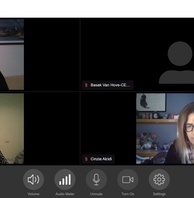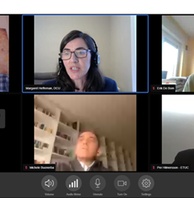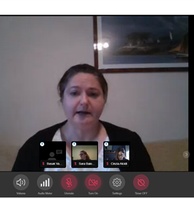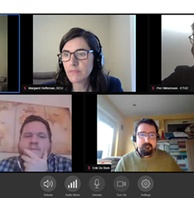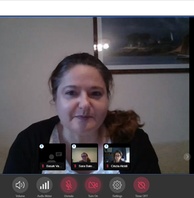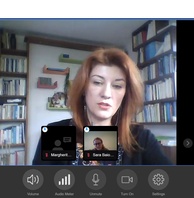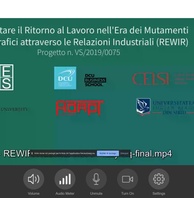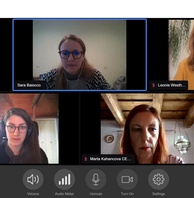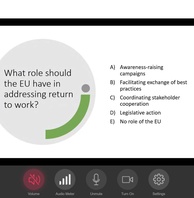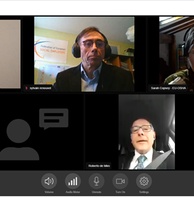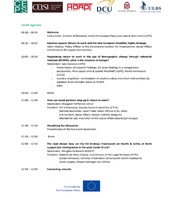REWIR: Negotiating return to work in the age of demographic change through industrial relations
Return to work after illness: the role of industrial relations

Jan. 29, 2021
𝐅𝐢𝐧𝐚𝐥 𝐂𝐨𝐧𝐟𝐞𝐫𝐞𝐧𝐜𝐞 𝐨𝐟 𝐭𝐡𝐞 𝐑𝐄𝐖𝐈𝐑 𝐩𝐫𝐨𝐣𝐞𝐜𝐭, 𝟐𝟗. 𝟏. 𝟐𝟎𝟐𝟏
Demographic change and population ageing have been identified as major societal challenges, with profound impacts for labour markets across the EU. These processes put pressure on the fiscal sustainability of the welfare state and the capacity of healthcare systems. In an attempt to tackle these challenges, member states have adopted measures to extend working lives. These include increasing the retirement age and the (re)integration of vulnerable groups into the labour market, including individuals who have become inactive through illness or disability. Within this context, healthy ageing practices and good workplace health standards have become EU priorities, as underscored in the Europe 2020 agenda.
The purpose of the conference is to promote an open debate on the state of play and the upcoming challenges for industrial relations’ actors in relation to workers returning to work after illness or for those with chronic diseases. Given the rapidly changing labour market landscape, including the effects of Covid-19, the discussion aims to explore future opportunities for return to work offered by the new EU Disability Rights Strategy for 2021-2030 and the EU Strategic Framework on Health & Safety at Work for 2021-2027. The panels will bring together participants from EU member states and EU-level organisations, inviting them to share developments in social partner strategies in return-to-work initiatives in their respective countries.
The research project “Negotiating return to work in the age of demographic change through industrial relations” (REWIR - VS/2019/0075) will inform the discussion. Its findings willshow how different industrial relations and social dialogue practices contribute to the shape of return-to- work policies and extend working lives in the EU member states. Further information can be found on the project website.
𝐀𝐠𝐞𝐧𝐝𝐚
𝟎𝟗:𝟑𝟎 – 𝟎𝟗:𝟑𝟓 𝐖𝐞𝐥𝐜𝐨𝐦𝐞 Cinzia Alcidi, Director of Research, Head of Economic Policy and Jobs & Skills Units(CEPS)
𝟎𝟗:𝟑𝟓 – 𝟏𝟎:𝟎𝟓 𝐊𝐞𝐲𝐧𝐨𝐭𝐞 𝐬𝐩𝐞𝐞𝐜𝐡: 𝐑𝐞𝐭𝐮𝐫𝐧 𝐭𝐨 𝐰𝐨𝐫𝐤 𝐚𝐧𝐝 𝐭𝐡𝐞 𝐧𝐞𝐰 𝐄𝐮𝐫𝐨𝐩𝐞𝐚𝐧 𝐃𝐢𝐬𝐚𝐛𝐢𝐥𝐢𝐭𝐲 𝐑𝐢𝐠𝐡𝐭𝐬 𝐒𝐭𝐫𝐚𝐭𝐞𝐠𝐲
Hana Velecka, Policy Officer at the Directorate-General for Employment, Social Affairs and Inclusion (European Commission)
𝟏𝟎:𝟎𝟓 – 𝟏𝟎:𝟓𝟎 𝐍𝐞𝐠𝐨𝐭𝐢𝐚𝐭𝐢𝐧𝐠 𝐫𝐞𝐭𝐮𝐫𝐧 𝐭𝐨 𝐰𝐨𝐫𝐤 𝐢𝐧 𝐭𝐡𝐞 𝐚𝐠𝐞 𝐨𝐟 𝐝𝐞𝐦𝐨𝐠𝐫𝐚𝐩𝐡𝐢𝐜 𝐜𝐡𝐚𝐧𝐠𝐞 𝐭𝐡𝐫𝐨𝐮𝐠𝐡 𝐢𝐧𝐝𝐮𝐬𝐭𝐫𝐢𝐚𝐥 𝐫𝐞𝐥𝐚𝐭𝐢𝐨𝐧𝐬 (𝐑𝐄𝐖𝐈𝐑): 𝐰𝐡𝐚𝐭 𝐢𝐬 𝐭𝐡𝐞 𝐬𝐢𝐭𝐮𝐚𝐭𝐢𝐨𝐧 𝐢𝐧 𝐄𝐮𝐫𝐨𝐩𝐞?
Moderator: Sara Baiocco (CEPS)
-Presentation of research findings: EU-wide findings in a comparative perspective, Nina Lopez-Uroz & Leonie Westhoff (CEPS), Marta Kahancová (CELSI)
-Country snapshots: combination of country videos and short interventions by speakers from member states in REWIR
-Q&A
𝟏𝟎:𝟓𝟎-𝟏𝟏:𝟎𝟎 𝐁𝐫𝐞𝐚𝐤
𝟏𝟏:𝟎𝟎-𝟏𝟏:𝟒𝟎 𝐇𝐨𝐰 𝐜𝐚𝐧 𝐬𝐨𝐜𝐢𝐚𝐥 𝐩𝐚𝐫𝐭𝐧𝐞𝐫𝐬 𝐬𝐭𝐞𝐩 𝐮𝐩 𝐢𝐧 𝐫𝐞𝐭𝐮𝐫𝐧 𝐭𝐨 𝐰𝐨𝐫𝐤?
Moderator: Margaret Heffernan (DCU)
Panelists: Per Hilmersson, Deputy General Secretary (ETUC) Michele Buonerba, Local Trade Union Official (CISL, Italy) Erik De Bom, Social Affairs Advisor (UNIZO, Belgium) Michaël De Gol, Vice Chair of the Social Affairs Board (SGI Europe)
𝟏𝟏:𝟒𝟎-𝟏𝟏:𝟓𝟎 𝐕𝐢𝐬𝐮𝐚𝐥𝐢𝐬𝐢𝐧𝐠 𝐭𝐡𝐞 𝐝𝐢𝐬𝐜𝐮𝐬𝐬𝐢𝐨𝐧 𝐏𝐫𝐞𝐬𝐞𝐧𝐭𝐚𝐭𝐢𝐨𝐧 𝐨𝐟 𝐭𝐡𝐞 𝐥𝐢𝐯𝐞 𝐞𝐯𝐞𝐧𝐭 𝐢𝐥𝐥𝐮𝐬𝐭𝐫𝐚𝐭𝐢𝐨𝐧
𝟏𝟏:𝟓𝟎-𝟏𝟐:𝟎𝟎 𝐁𝐫𝐞𝐚𝐤
𝟏𝟐:𝟎𝟎-𝟏𝟐:𝟓𝟎 𝐓𝐡𝐞 𝐫𝐨𝐚𝐝 𝐚𝐡𝐞𝐚𝐝: 𝐡𝐨𝐰 𝐜𝐚𝐧 𝐭𝐡𝐞 𝐄𝐔 𝐒𝐭𝐫𝐚𝐭𝐞𝐠𝐢𝐜 𝐅𝐫𝐚𝐦𝐞𝐰𝐨𝐫𝐤 𝐨𝐧 𝐇𝐞𝐚𝐥𝐭𝐡 & 𝐒𝐚𝐟𝐞𝐭𝐲 𝐚𝐭 𝐖𝐨r𝐤 𝐬𝐮𝐩𝐩𝐨𝐫𝐭 𝐣𝐨𝐛 𝐫𝐞𝐢𝐧𝐭𝐞𝐠𝐫𝐚𝐭𝐢𝐨𝐧 𝐢𝐧 𝐭𝐡𝐞 𝐩𝐨𝐬𝐭-𝐂𝐨𝐯𝐢𝐝-𝟏𝟗 𝐞𝐫𝐚?
Moderator: Margherita Roiatti (ADAPT)
Panelists: Roberto de Miro d'Ajeta, Coordinator of the Legal Network (ECPC) Sylvain Renouvel, Director (Federation of European Social Employers) Sarah Cospey, Project Manager (EU-OSHA)
𝟏𝟐:𝟓𝟎-𝟏𝟑:𝟎𝟎 𝐂𝐨𝐧𝐜𝐥𝐮𝐝𝐢𝐧𝐠 𝐫𝐞𝐦𝐚𝐫𝐤𝐬
